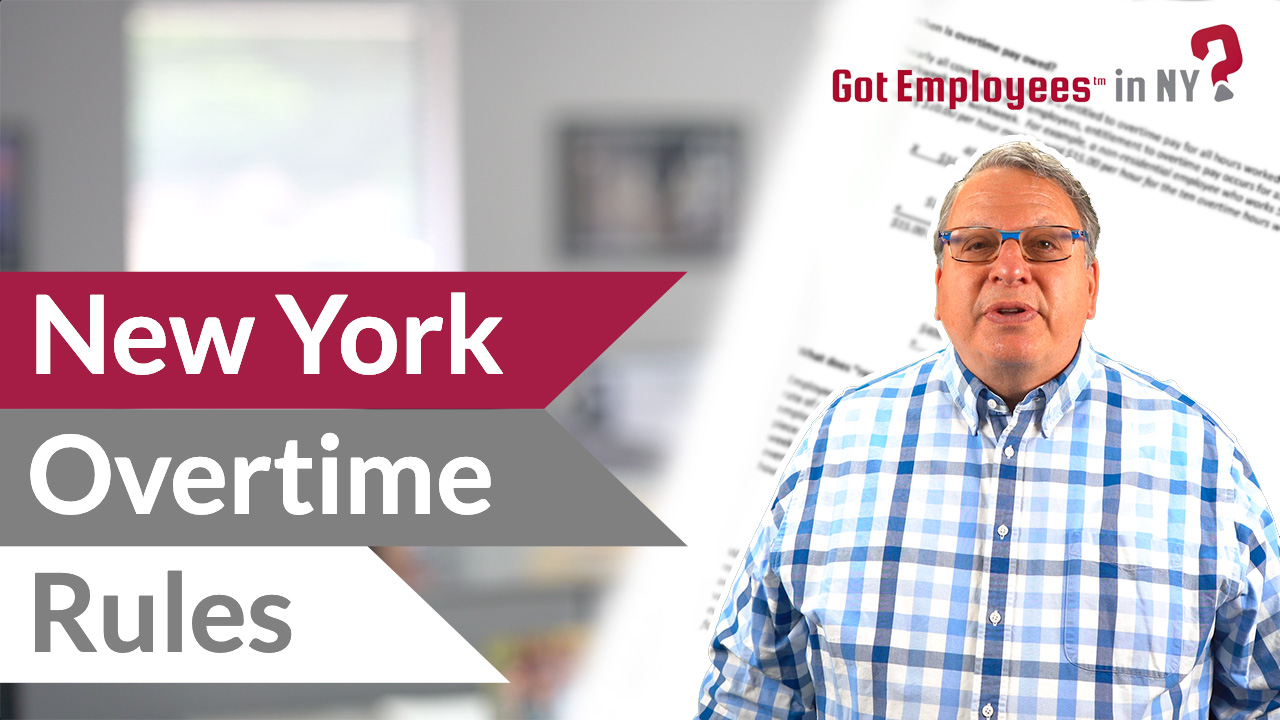
Are your employees correctly classified as exempt or non-exempt from overtime? Every company must do this and unfortunately, it's not as simple as deciding to make them hourly or salaried. Learn how.
Transcript:
Hello business owners and HR professionals.
One of the questions I’m often asked from business owners here in New York is do I have to pay my employees overtime?
The short answer is maybe. And getting wrong can wreak financial havoc on your business.
Of course, we all know that it may be easier to pay an employee a salary, you can avoid having to keep track of hours and their pay will be the same every pay period.
But it may not always be legal.
People often use the terms hourly and salary to categorize their workers. And salaried workers don’t have to be paid overtime. That’s what they think. I hear this all the time from business owners. And that’s not the case.
Instead, the terms you need to focus on are EXEMPT and NON-EXEMPT.
Every business must classify their employees as either exempt from overtime or non-exempt from overtime. It would be best also to have a written job description that details your employee’s job duties to substantiate your classification.
The bottom line is this. Here in New York an employee either meets the qualifications not to receive overtime pay or they don't, and you must pay them overtime.
State and federal laws dictate whether an employee is exempt from overtime. Since New York State’s requirements are more stringent than the federal government, you must follow the New York State laws.
And here’s how they work. It’s a two-step process. First an employee must meet or exceed a certain level of pay to be considered exempt. If they do that, then them must fall into specific categories of workers who can be exempt from overtime.
So, it must be both. If an employee who is not exempt from overtime works more than 40 hours per week, they must receive time and a half pay for all hours worked over 40 in a week.
Overtime pay is not optional. An employee can’t wave their right to receive it. Otherwise, employers would only hire those people that said they don’t want to be paid overtime.
To be classified as an exempt from overtime employee, the employee must first meet or exceed the salary threshold required by New York State.
Here on Long Island, it’s $1,050 per week. So, if they do not earn at least $1,050 per week here on Long Island, they cannot be exempt from, and must be paid overtime.
If they do meet this income threshold, they must also pass the second test. Your employee must be a specific kind of worker with certain types of duties that fall into various categories of exemptions.
Many of these exemptions include work that exercises independent judgement, where an employee makes important decisions that impact the company. Specific exemptions include executive, administrative, professional, outside sales, and other skilled work positions.
Even if it includes the words used in the exemptions, an employee’s title isn’t as important as the actual work that they do. Their job duties dictate whether they should be considered exempt or non-exempt.
Generally, in New York, a person who works with their hands is likely to be entitled to overtime. Knowing how to classify an employee saves you money in the long run.
If you classify incorrectly you can end up facing a lawsuit or investigation for not just unpaid overtime but also fines and damages. And it’s often not just one or two employees you would have to pay back wages to.
If the state starts an investigation, it will likely include all your employees. It can be a big financial hit as well as a reputational one. Even if your company goes out of business, as the employer you could still be held personally liable. You’re putting your personal assets in danger.
So, you want to make sure you get this right. I say this all the time, “Baron is not the payroll police.” But as a local New York company, we are well-versed in the numerous and complex New York State local employment laws.
Unlike the national payroll companies, we have specialized knowledge in New York. We will tell you if we notice you’re doing something wrong. So, you can decide what changes if any may be best for your business to take to avoid financial danger.
You will sleep better at night knowing there are no surprises to potential financial knockout punches looming over your head.


